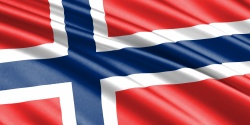Published: 19.12.2019

Norway is notorious for human rights infringements, in particular when it comes to respecting family life. The European Court of Human Rights will soon rule on a case involving a group of families torn apart by the country’s child welfare services – the Barnevernet. The Ordo Iuris Institute provided the Court with a brief which describes its experiences fighting for parental rights in courts in Poland and Norway, as well as presenting the relevant international standards.
The European Court of Human rights has been receiving an increasing amount of complaints concerning the exploits of the Norwegian child welfare services, which reportedly do not respect the right to family life. Recently, the Court informed the Norwegian government about 16 complaints being filed regarding the Barnevernet’s violations of Article 8 of the European Convention on Human Rights. The Court has already sided with the parents in several of its rulings, condemning Norway for its hasty separating of children from their biological parents and transferring them to foster homes.
The Ordo Iuris Institute, after acquiring the consent of the head of Section II of the ECHR, provided the Court with an “amicus curiae” brief containing a description of the Norwegian and Polish child welfare systems and presenting the international standards regarding the legal protection of the relationship between parents and their children. The Institute noted that, according to previous rulings by the ECHR, a state may only separate a child from its parents when it is the only possible way of protecting their best interest. This applies to pathological behaviours by the parents which pose a significant threat to the child’s life and health, such as alcohol and drug abuse or violence. In other cases, states should use less severe intervention methods. Even if a child is taken away, the state should seek to restore proper relations between them and their parents as it is in the child’s best interest to be raised by their biological family, unless this is rendered impossible by the parents’ unwillingness to correct their behaviour, for example.
“The Barnevernet operates on contrary premises according to which the biological bond between a child and their parents is of no consequence, and taking the child away is considered justified if it is hypothetically possible to offer them a ‘better environment to develop’ in a foster home. The Ordo Iuris Institute considers this incompatible with the existing international standards,” says Karolina Pawłowska, Director of the Ordo Iuris Centre for International Law.
The date of the hearing is as of yet unknown.

17.04.2025
• The Ordo Iuris Institute has prepared an opinion for the UN as part of a thematic report on surrogacy and its impact on the rights of women and children.

09.04.2025
• On April 8, the Ordo Iuris Institute presented the Polish version of a document with proposals for reforming the European Union, prepared jointly with Hungary’s Mathias Corvinus Collegium (MCC).

03.04.2025
• The Advocate General of the Court of Justice of the European Union (CJEU) has issued an opinion in a case involving a same-sex couple’s demand for their German marriage to be recognized as a marriage in Poland.

The Court of Appeals in Lublin, Poland, has upheld the verdict of the Regional Court in Radom, sentencing a gynecologist to one year of imprisonment, suspended for three years. The doctor must also pay PLN 6,000 to the State Treasury in legal costs.